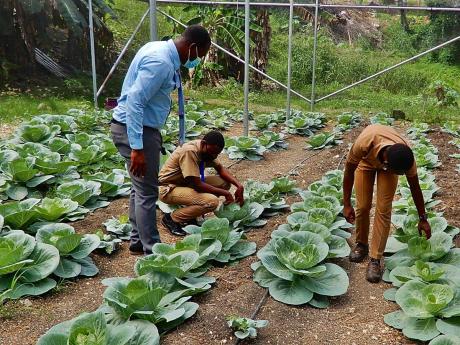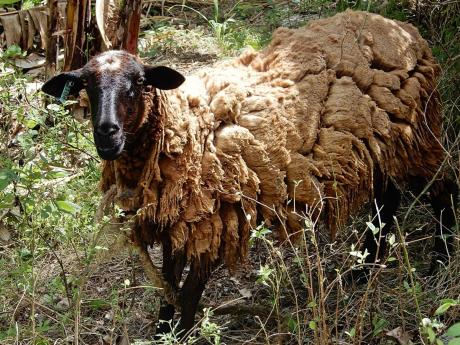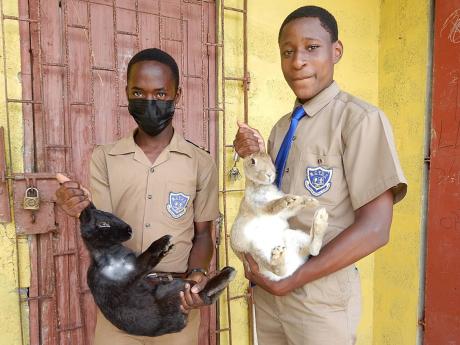Agriculture takes pride of place at Marcus Garvey Tech
There is more to agriculture than just producing food and, at Marcus Garvey Technical High School in St Ann’s Bay, St Ann, this has become apparent in recent times.
In what could aptly be described as a revolution, the agricultural science department at the school named in honour of Jamaica’s first national hero is changing students’ mindset towards agriculture.
Interest in the subject has reached new levels as the agricultural programme takes pride of place at the school. Now, students are so enthusiastic about it that they express disappointment if they are unable to select the subject as an option as they progress to higher levels.
Several changes have marked the upturn in agricultural science at Marcus Garvey: another teacher has been employed to deliver content in the subject area, students are now doing agricultural science from grades seven to 11, food production on the farm has gone up, more students are doing the subject at the Caribbean Secondary Education Certificate (CSEC) level, and there has been improved performances in agricultural science and other traditional science subjects in CSEC.
Physics and biology, for example, recorded 50 per cent increases in CSEC passes since the project commenced about three years ago.
The ripple effect started when head of the agricultural science department, Ann-Marie Gordon – aided by a team of three other teachers, Shanor Collymore, Danielle Richards, and Kirk Campbell – decided to twin it with the science department, under the notion that agriculture was actually a science, and agricultural science meant just that: science.
The twinning coincided with an expansion of the department, which now sees the cultivating of crops and the rearing of animals as part of the programme. There is also a greenhouse on the farm.
“The whole aim of joining the departments together is for greater cooperative learning, and it has been showing great results ever since we’ve done this, in terms of our academics, and CSEC passes,” Collymore said as he took The Gleaner on a tour of the school farm.
“The students are inferring the knowledge more, the students are linking the topics more, and [they are] getting a greater understanding,” he continued.
Students love practical elements
Collymore attributed the success of the programme to the students’ love for practical elements.
“The students realise that agriculture is the foundation for the survival of every civilisation. They love what they’re doing here. They do the practicals by themselves. Everything that is going on right now on property, it is the students that have been doing it. The teachers, we just supervise,” he explained.
Crops such as yam, pumpkin, cabbage, pak choi, cucumber, callaloo, and banana are cultivated and animals such as pigs, sheep, rabbits and broilers (chicken) form part of what is now a typical medium-size Jamaican farm.
Fitted with a slaughterhouse, animals are killed and sold to the neighbouring community and to the school’s canteen. Eggs and crops are also distributed through the same avenue.
According to Gordon, “We don’t normally just teach our students. We carry them out [on trips], we show them the proper way of farming, and we support the school in some aspects that other schools don’t. For example, our farm is not just a tutorial farm, it’s also an income-generating farm. We support the school canteen. We sell to students and staff as well. It’s an ongoing thing.”
Added the head of department: “So, even for students who are doing SBA (school-based assessment), other schools normally have to join our school to assist in their practical. For example, Brown’s Town High don’t have the facilities to assist in their SBA, so they would come and we will, like, give them a plot of land, we will show them and give them some chickens and assist. So we support other schools as well on our farm.”
Gordon said the aim is to make the subject exciting to keep the students interested.
“We try to let them see the importance of it, and I think it’s having a positive impact on the rest of the school. We show them agriculture is not just dirty work; we teach them the careers they could branch off into, and also show others who don’t really know about agriculture that it’s not just one side of agriculture that exists,” she said.



